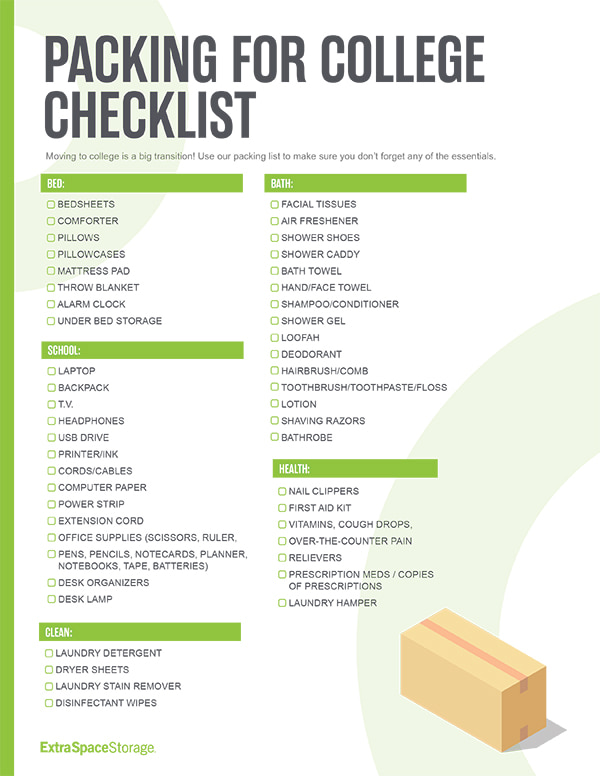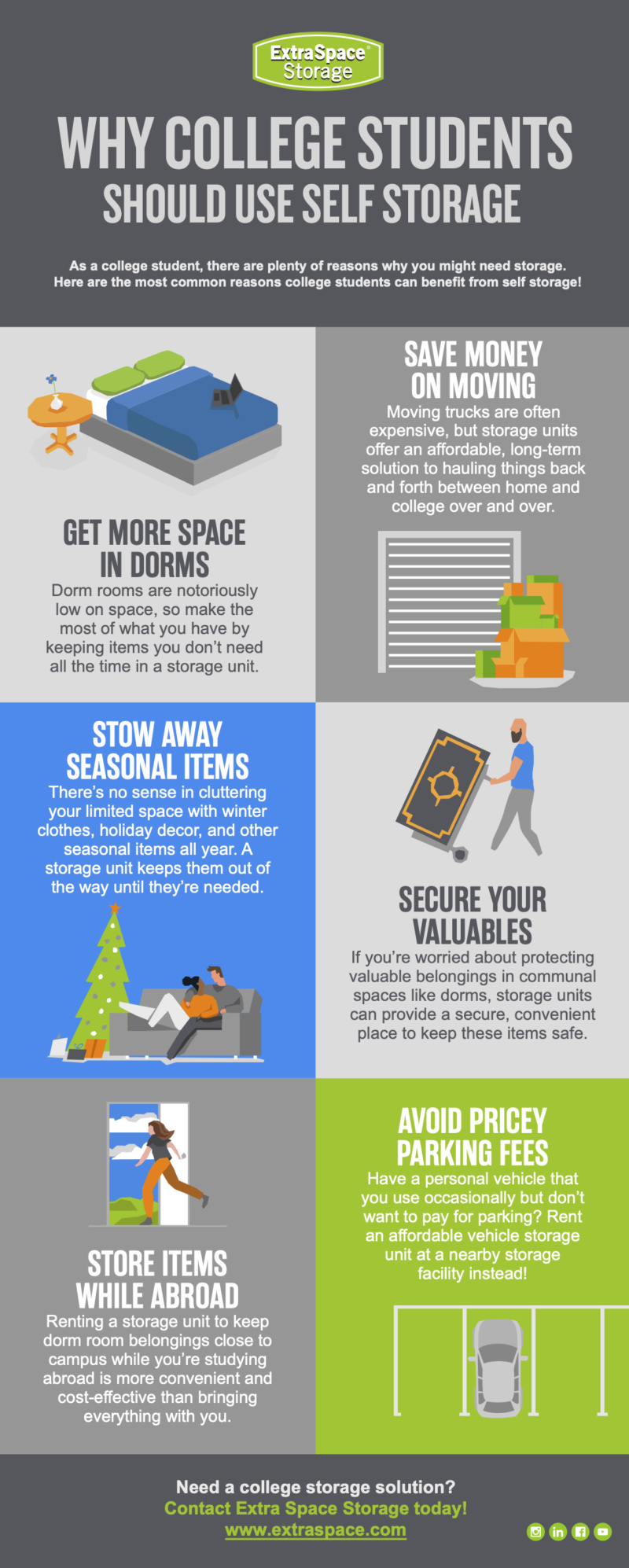Funny Gifs About Being a Freshman
Going to college can be one of the most exciting times in a young adult's life. And while many college hacks are useful, it's still good to know how to prepare for college as a freshman. From learning niche subjects to networking with peers or managing your budget, Check out these 17 helpful tips for first-time college students!
Attend College Orientation
Going to freshman orientation is a great way to get to know the campus and meet new people—but it's also useful as a crash course for college life as a first-time college student. Many university orientations are structured with campus tours to help students become familiar with residence halls, health and recreation centers, and various department buildings. This is also an excellent time to ask your guide plenty of college orientation questions to learn about campus policies, dining options, safety procedures, clubs and activities, department advisors, and more! Since these tours are often led by actual students, you can also get some insider tips on favorite study spots, the best restaurants, and more!
Practice Your Time Management
Freshman year of college is when many young adults experience the freedom of making their own schedules. While unstructured free time may seem awesome, it's important to establish routines—making this tip essential for freshman year. Having a planner, desk calendar, or digital management tools like Google Calendar can help you maximize the hours in your day. There's also a wide range of free time management tools to make sure you're staying on track.
"Scheduling blocks of time in a planner or Google Calendar works," said Jeffrey Levine, Dean of Undergraduate Admission at University of the Pacific. "I encourage students to put class time, meals, workouts at the gym, study time, exams, and all other pertinent appointments [in a calendar] on weekly mode to see where time is for fun."
Make Studying a Priority
Find study methods that work for you—while pulling an all-nighter can happen, it's a better idea to prepare in advance to help mitigate stress and have good. Whether it's color-coding your notes, making flashcards, or trying the Poromodo method, experiment with different studying techniques to see what works best for you. "There has been research that students who study in study groups do well because they're not afraid to ask others in the group for help," said Levine.
Watch Your Budget
Between late-night dinners, weekend nights out, and general college expenses, learning how to manage finances is usually a big challenge for college freshmen. A few basic money management tips for students include knowing how much is in your bank account, so you don't overdraw, and making sure to always pay off your credit cards on time and in full each month. Save money by registering for a university meal plan, shop for your own groceries, and avoid going out to dinner too often. Use public transportation like trains and buses to help you save on gas expenses and live sustainably! When talking with incoming university students, Levine recommends students put at least $25 a month into a savings account so they can have some money saved by the time they finish school. In addition, he suggests students find part-time jobs or paid internships throughout the school year, or find a full-time position over the summer.
Know How to Stay Safe on Campus
Late nights are common for college students. While walking back to your dorm or car, make sure to be aware of your surroundings and have the campus security number saved in your phone. Many universities have emergency phones placed throughout campus that put you in touch with a security officer right away. You can also stay safe at college by downloading apps like Noonlight, Circle of 6, or bSafe, which utilize mobile device tracking, emergency contact lists, audio and video footage, and other security features for your personal safety.
Don't Forget About Your Health
Combat effects of school stress and stay healthy by getting eight hours of sleep a night, drinking lots of water, taking vitamins, and getting a balanced diet. If you do get sick, most universities have student health and wellness centers with medical professionals on-site who can provide flu shots, cold medicine, and basic first-aid care. They may also offer free or discounted counseling services for those who need somebody to talk with. These healthcare professionals can also help you get connected with long-term care within your insurance network. Simple ways to take care of your mental health during college include meditating, avoiding procrastination, getting regular exercise, and limiting caffeine, among other stress management solutions.
Join a Club & Get Involved on Campus
Campuses are full of clubs, teams, organizations like fraternities and sororities, and other opportunities to meet new people. Not only are these activities great for expanding your hobbies, but they're also a fantastic way to make new friends and ultimately expand your network. Whether you want to play on an intramural team, audition for the university choir, write for the school newspaper, or be a member of a political action committee, there's something to join or do for everyone on campus! Interested in something that isn't offered at your school? Consider gathering a group of people and starting your own club or organization!
Download Our Packing for College Checklist Today!
Looking for an easy way to simplify your life? Download our Packing for College Checklist now to help you keep things in perfect order!
Just enter your name and email address to receive immediate access to our Packing for College Checklist!

Visit the Career Center
If you're curious about post-collegiate job prospects or how to get involved in your desired career field, stop by the career center on your college campus. Career centers are invaluable resources that can guide students toward ideal career paths. The counselors who work here help students find internships, create resumes, and teach how to network—all of which can go a long way after college.
Take Advantage of Student Perks
Did you know you can get discounts just for being a college student? With a valid school ID or student email, college students can take advantage of great student discounts on shopping, Amazon purchases, and shipping! Book cheap airline tickets on Student Universe, enjoy discounted access to digital newspapers like The New York Times, or save money on car insurance and discuss student discounts with your provider. Don't forget to ask about student discounts at restaurants, movie theaters, museums, and other local attractions near your university, too! And watch out for a designated day of the week where can students receive discounts on food and admissions.
Back Up Your Files
Save yourself major stress by frequently backing up files on your laptop or tablet with an external hard drive or USB drive. You can store all of your assignments, papers, and notes, which frees up space on your computer and safeguards against computer crashes. For a more cost-effective option, Google Drive allows you to save up to 15GB worth of documents, videos, PDFs, and other files for free.
Don't Forget to Do Your Own Laundry
College is all about developing responsible, healthy habits, including doing laundry! If you plan to go home on weekends or during holiday breaks, the last thing your parents will want is you lugging a ton of laundry with you. Do yourself a favor by learning how to do your own laundry! Most university dorms will have washers and dryers available for resident use. This service is usually included as a part of your tuition, but some colleges may require you to pay for usage. In this case, it can be helpful to have quarters or a credit card on hand.
Learn to Live with Roommates
Many colleges require freshman-year students to live on campus in residence halls, which means you may have a roommate during your first year. Sharing your space with someone can be a huge adjustment, but there are ways to make it easier for both of you. You'll want to set some boundaries for things like chores and schedules, and be sure there's mutual respect for the space. This is a great way to connect with someone experiencing the same thing as you, so take time to get to know them!
Put Together a Shower Kit
Master your resident hall shower routine by keeping all of your toiletries and shower necessities together in a portable caddy! Also, keep in mind residence hall showers are used by many people, and even though they're cleaned regularly, they can still be host to germs and bacteria. Wearing a pair of shower shoes or flip-flops every time you shower can help keep your feet protected! It's also a good idea to switch out your towel for a fresh one at least once a week and wash them regularly to avoid bacteria build-up.
Talk with Your College Faculty
It's easy to be intimidated by college professors and advisors when you're new to the university system, but remember they're guides for your educational growth. "Visit the professors and ask questions during office hours," said Levine. "They're here to help, and it can only help your final grade." But professors aren't just useful resources for when you have questions about class assignments, projects, or readings. Ask their advice on how to explore your chosen field more deeply. University advisors and professors can recommend courses to take in other departments or things to research outside of class materials—and can even be a reference for future internships and jobs!
Try to Find Secondhand Textbooks
Shopping at the campus bookstore can be incredibly expensive, as the average cost of a brand new textbook is estimated at around $84. While you may be able to rent from the bookstore instead of buying, it can still be pricy. First thing's first—before you buy any books, check out the syllabus from each course to see which textbooks are required. Some could be optional, which can save you money! When it comes time to buy books, check out thrift stores, Half Price Books, Amazon, ThriftBooks, or Chegg to see if you can purchase a used version of the textbook. Your campus may also have an online group where you can swap books with other students. E-books tend to cost about 40-50% less than physical textbooks, which may help you save cash down the line. When the semester's over, resell your textbooks at the university bookstore or online to get some of that money back.
Prep for a Good Night's Sleep
Life in the residence halls can be noisy, even during weekdays, which can make it hard to get a solid night of sleep. One of the easiest ways to make sure you rest well is by keeping your room decluttered and setting up a comfy bed. Residence hall mattresses can sometimes be a little stiff, so combat the rigidness with a mattress pad, soft sheets, a fluffy comforter, and lots of pillows. Keep items like earplugs or an eye mask near your bed in case your roommate decides to pull an all-nighter. Also, try avoiding caffeine in the evening and staying off your phone before sleeping to help you create healthy sleeping habits.
Look Forward to the First Day
Freshman move-in day can be extremely thrilling and a little scary, even for parents. Even though moving into the dorms, finding your classes, and adjusting to your new surroundings can be overwhelming, try to let yourself simply enjoy the experience. You'll be making friends, discovering new hobbies, and learning more about yourself! Most campuses will also dedicate the first week of classes to hosting events and activities for new students as they transition to college life.
***
Preparing for college? Extra Space Storage offers incoming college freshmen secure self storage at facilities located throughout the country to help with your transition. Find a storage unit near you!



Source: https://www.extraspace.com/blog/life-transitions/college/how-to-prepare-for-college-16-tips-for-freshmen/
0 Response to "Funny Gifs About Being a Freshman"
Post a Comment